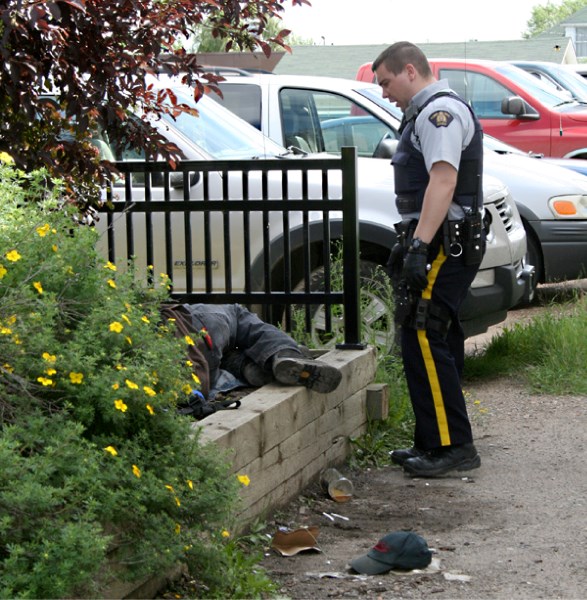The Town of St. Paul is considering a bylaw to fight panhandling and public intoxication, after the RCMP annual delegation to council recommended the Town take action.
“There’s been complaints regarding some of the intoxicated people,” walking around town, said RCMP Staff Sgt. Bob Batchelor at the council meeting on July 11.
“We don’t want people to be harassed and so we’re looking into what other communities have for bylaws,” said Mayor Glenn Andersen, after the meeting.
RCMP has dealt with 40 complaints since July 1 regarding intoxicated persons and over 100 complaints in the month of June.
While public intoxication and open liquor are covered by provincial regulations, the province is hesitant to prosecute because if it goes to trial it must cover the costs, Batchelor said. He recommended the Town draft a panhandling bylaw.
Judges do not fine people who have been locked up for public intoxication, he said, indicating limited deterrence for repeat offenders under current provincial laws.
“It doesn’t seem to be working the other way, throwing them in for the night, letting them back out in the morning, and they’re doing the same thing,” he said.
The Town would incur any court costs if a future panhandling bylaw went to trial instead, he said.
Andersen speculated the bylaw could be in effect by 2012 if approved by council.
“The majority of the time, almost exclusively, we deal with the same people again and again,” said RCMP detachment spokesman Cst. Sam Montasser, in a phone interview. Around 10 to 20 people are brought in repeatedly for public intoxication, he said.
“It definitely is pretty habitual for a group of people.”
Under the Gaming and Liquor Act, a person can’t be issued a ticket if incarcerated because it counts as punishment twice for the same offence, he added. RCMP has found when tickets are issued they usually go unpaid, which go out for warrant. If convicted, time served usual counts for time served in lieu of the fine, which negates the charge, he said.
“Whether or not it would be an effective means for controlling the problems … Time would be the only thing we could use to tell us if something like that would work,” he added.
Public intoxication offences tie up a significant amount of officers’ time. Around 25 per cent of calls relate to dealing with intoxicated persons, not including impaired drivers or domestics, which may also involve alcohol, said Montasser.



